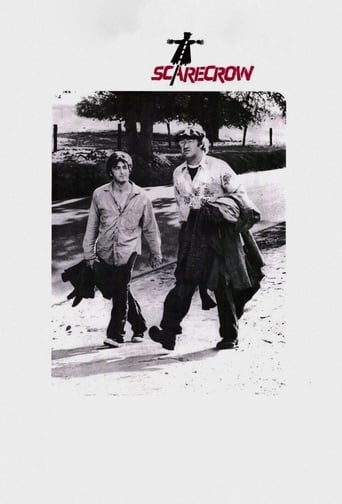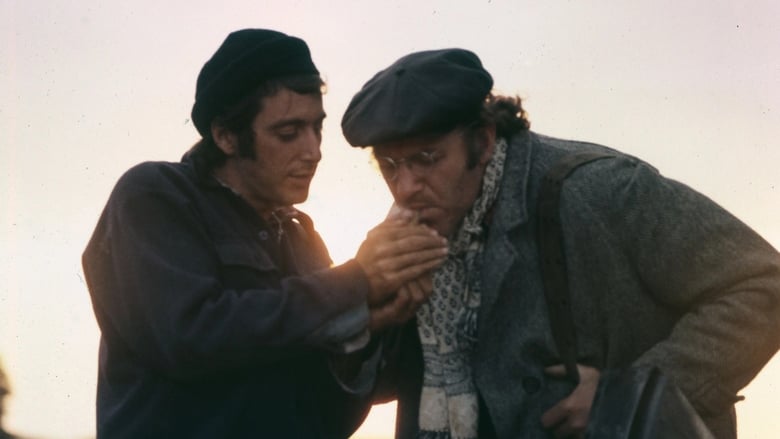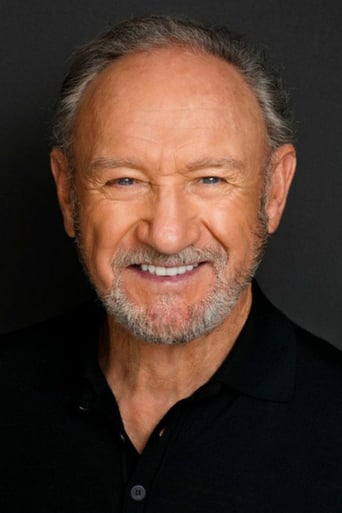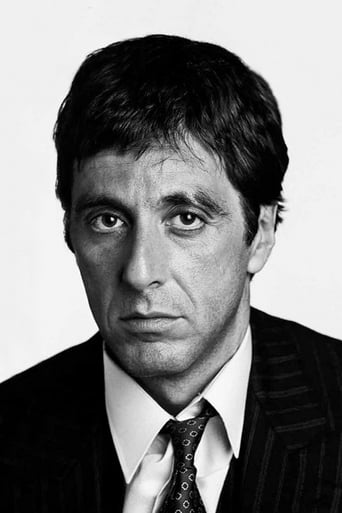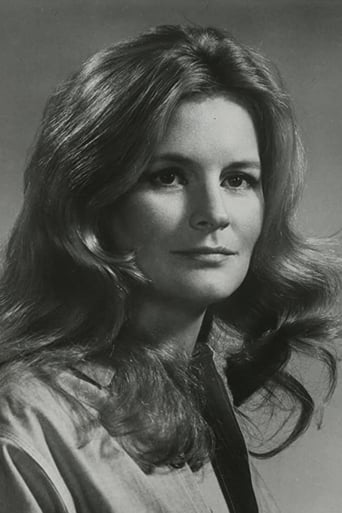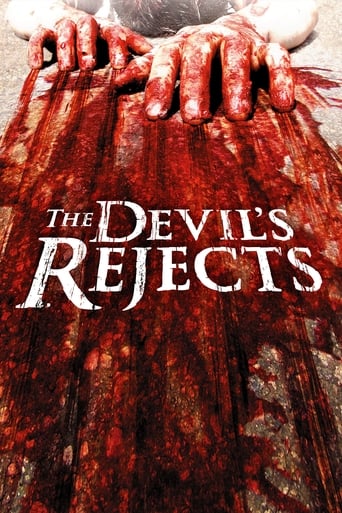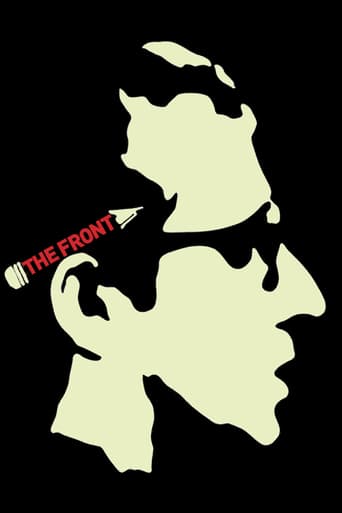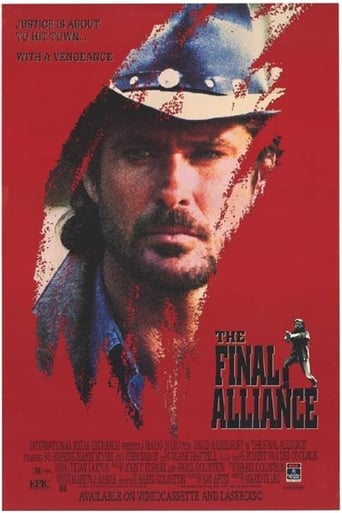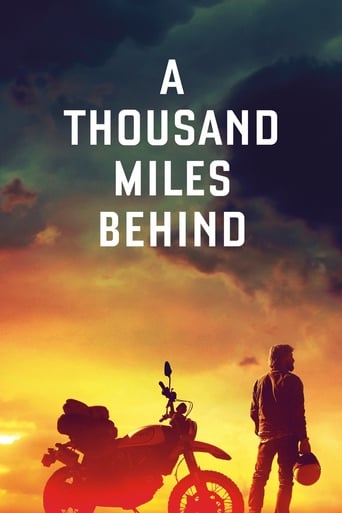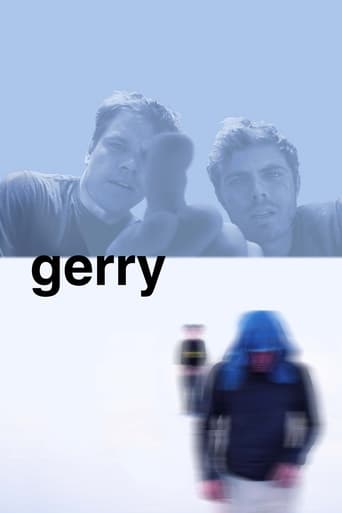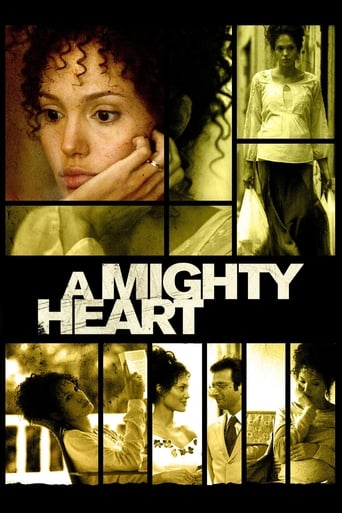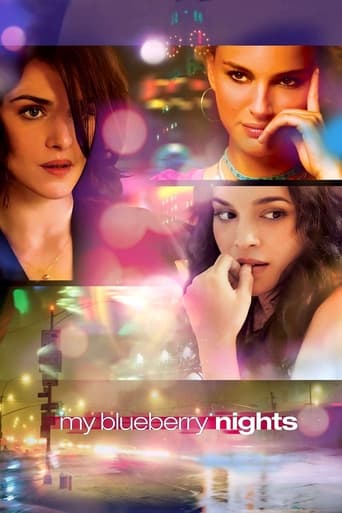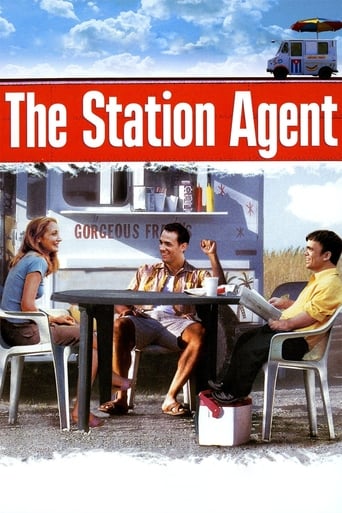Scarecrow (1973)
Two drifters bum around, visit earthy women and discuss opening a car wash in Pittsburgh.
Watch Trailer
Cast


Similar titles
Reviews
Max (Gene Hackman) and "Lion" (Al Pacino) are two drifters who meet on the road. Max is an ex-convict, while Lion is a former sailor who abandoned his wife. Before much time has passed, they've become friends. They stick together while each man works towards a purpose. Max has been socking away a moderate amount of funds in order to open a car wash in Pittsburgh, and Lion is looking to go to Detroit to meet his child (he doesn't even know if the kid is male or female) for the first time.Garry Michael White wrote the screenplay for this thoughtful, sensitive drama, capably handled by photographer Jerry Schatzberg, in his third filmmaking credit. Given the nature of Schatzbergs' former trade, it's not surprising that the film looks great, especially since it's shot in Panavision and makes great use of several locations. Like so many late 1960s and 1970s films, it's not afraid to get grim, and doesn't spoon feed the audience a happy, conclusive ending. It is somewhat episodic, with two major sequences. First, Max connects with an old friend, Coley (Dorothy Tristan), who partners with a gal named Frenchy (Ann Wedgeworth) in the junk business. Next, after a bar room brawl, Max and Lion spend time in stir, where Lion is victimized by a trustee (Richard Lynch).Hackman and Pacino have rarely been this engaging. It's not surprising to learn that Max is the favourite role for the now retired Hackman; it is an interesting, amusing character, a man who's both a lover and a fighter. Pacinos' Lion may seem to be the inexperienced, naive one, but he's actually the one who has more to teach his new friend. In particular, how to have a good laugh.The first rate supporting cast also includes Eileen Brennan and Penelope Allen. Lynch once again shows why he was one of the big screens' premier villains. Richard Hackman, who has the small role of Mickey, is Genes' brother.Nicely shot (by Vilmos Zsigmond) and scored (by Fred Myrow), this is an affecting little film that leaves a memorable impression.Seven out of 10.
This is an interesting character study of two drifters who meet up at the beginning of the film and then travel across the American countryside in search of adventure. Gene Hackman and Al Pacino give truly standout performances as the leading characters. It takes actors and not stars to give the drifter characters some depth. This is no glamorous kind of film either, no punches are pulled with regards to some of the dangers that Hackman and Pacino encounter as they thumb their way from one small town to another.A film that deserves more recognition.
Not a movie for all tastes. There's no real plot. Instead the narrative follows two drifters as they pursue their car-wash dream. Max's (Hackman) problem, however, is that he can't stay out of trouble, given his combative personality. Still, he buddies up with Lion(el) (Pacino) who has abandoned his pregnant girl friend to become a sailor. Now he's taken on a frivolous "what will be, will be" attitude that Max finds appealing. But will they ever get to Pittsburg and their car-wash dream.The movie really depends on whether you find the characters interesting enough to stick around for two hours. Characters other than the two leads don't stick around long, which I guess befits two drifters. Thus, there are other interesting types, except for Frenchy (Wedgeworth) who raises the whole idea of "bimbo" to new levels of exaggeration. Also, there's no attempt to pretty-up anything or anybody. It's pretty much a back roads America as it really is, and not as Hollywood would like it. And, unless I misread the subtext, the movie follows pretty much in the wake of 60's rootless counter-culture This is Hackman's favorite movie, though it did flop at the box-office. As the hulking Max, he's completely convincing as a "planner" who can't really plan. (Note how he gets entangled in the wire in the film's opening scene—a tip-off of things to come.) Pacino's role is more complex. My initial impression was that Lion is a gay man being drawn to the macho Max. That would explain why he left his girl and took up a roving life whether as a sailor or drifter. Nonetheless, the movie leaves this gay factor uncertain. The film's dramatic highlight is when a grieving Lion grabs a nearby boy and tries to baptize him in a fountain. That's because he thinks his own son died before baptism and therefore now dwells in eternal limbo. Of course that assumes Lion's been told the truth by the supposed mother. But then she would have reason to punish Lion since he did abandon her.Anyway, these are some conjectures on a film I really enjoyed. Still, I can understand why others might be bored by a narrative whose virtues do tend to meander. But, if they do, it's in the manner that real lives also do.
Fittingly for a film awash in "Wizard of Oz" motifs, Jerry Schatzberg's "Scarecrow" opens on a yellow brick road. Max Millan's (Gene Hackman) on one side, Lionel "Lion" Delbuchi's (Al Pacino) on the other, but the gift of a "last match" sparks a friendship which draws both men together.Schatzberg then quickly sketches the personalities of both men. Max is an angry hothead who has just been released from prison and who harbours dreams of starting a business. Lion, in contrast, is a coward who resorts to comedic self depreciation in order to avoid conflict. Both men have severe avoidance complexes, resorting to cowardice or violence, action or inaction, as a means of combating a hostile post-War America. Like Jack Nicholson's "The King of Marvin Gardens" (1972), "Scarecrow" (1973) ultimately watches as two outcasts grapple with delusions, aspirations and an American Dream which exists only to betray."Scarecrow" takes the format of a road-movie, Lionel and Max embarking on a little cross country adventure. Their ultimate destination? Small-town Pittsburgh, where the duo hope to start a car-wash business. Along the way they stop off at Max's sister's home in Denver, and then visit Lionel's ex-lover in Detroit. Both visits point to wasted lives steeped in sadness and regret. Lionel and Max's contradictory personalities may act as a magnet which pulls each towards a "sensible" middle ground, but there are no happy endings here. Lionel ends up in a mental hospital and Max remains a vagabond, a climax which perhaps too similarly echoes that of "Midnight Cowboy" (1969). Last shot? Max hammering a shoe full of dirty cash on a counter, still hopeful, but no closer to his dreams. Gorgeously shot by master cinematographer Vilmos Zsigmound.8/10 – Minor classic. Worth one viewing.

